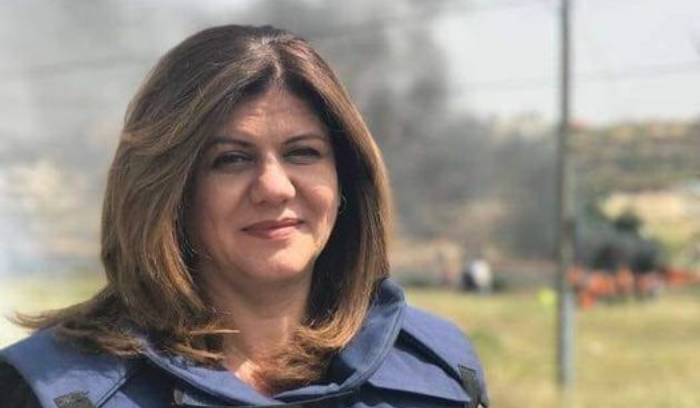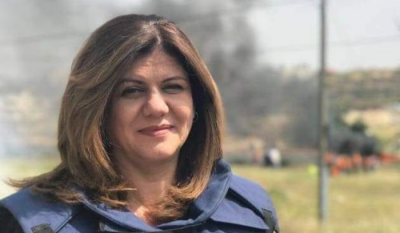Shireen Abu Akleh, the Palestinian journalist who was martyred during an Israeli army operation in Jenin in the occupied West Bank, was a veteran journalist and one of the first faces to appear on the Qatari channel "Al Jazeera." She was known for her courage and extensive knowledge of the historical conflict between Palestinians and Israelis, according to a summary provided to Agence France-Presse from occupied Jerusalem. Born in Jerusalem at the age of 51, she also held American citizenship. Her family hails from Bethlehem. Abu Akleh studied journalism at Yarmouk University in Jordan and worked for the official Palestinian radio "Voice of Palestine" and "Monte Carlo" radio before joining "Al Jazeera" in 1997, a year after its launch.
Shireen quickly became a star at "Al Jazeera," which was the first comprehensive Arabic satellite channel.
The Al Jazeera network described her martyrdom as an "assassination," noting that Israeli occupation forces killed her "in cold blood with live ammunition while she was doing her journalistic work."
Her martyrdom shocked many Palestinians, especially journalists who mourned her, speaking of her "bravery," but also her "calmness and composure." She was known among her colleagues for her "ethics and professionalism."
Her colleague Huda Abdel-Hamid, currently in Ukraine, said in a phone call from Agence France-Presse's office in Jerusalem: "She was certainly a very brave journalist." She added, "I used to ask her: Don’t you get tired? Because she was always present whenever something happened, and she was much bolder than I was." Huda continued, "But she was also an experienced journalist who did not take foolish risks just for the sake of it."
In the videos broadcast by "Al Jazeera" or shared on social media, shocked and tense journalists appeared near Shireen's body, which was covered with a bulletproof vest labeled "Press" in English and a helmet on her head.
In an interview with the local news agency "Watan" in Nablus, Abu Akleh stated: "Of course, I am often scared when reporting," adding, "I do not throw myself into death; I look for a safe place to stand and make sure to protect our journalistic team before worrying about the footage."
Shireen Abu Akleh was covering an Israeli army operation in the Jenin camp when she was shot in the face. Shortly before that, she had posted a short video on her Twitter account filmed from the car, titled "The Road to Jenin." The images showed a narrow road, with rain falling on the car's windshield.
### Her Story with Jenin
Last October, Shireen Abu Akleh wrote in "Palestine This Week" about Jenin, saying: "For me, Jenin is not just a passing story in my professional career or even my personal life. It is the city that can lift my spirits and help me soar high."
She added, "It embodies the Palestinian spirit that sometimes trembles and falls, but exceeds all expectations and rises to pursue its journeys and dreams."
She was commemorated by prominent political figures, leaders, Palestinian organizations, international unions, the Palestinian presidency, and the Islamic "Hamas" movement in Gaza, as well as the U.S. ambassador to Tel Aviv, Tom Nides.
Journalist Mohammed Draghmeh, a teacher at Birzeit University and one of her close friends, stated: "I consider her one of the strongest journalists in the Arab world. I teach her reports to my students at Birzeit University and in the Gaza Strip."
He noted that "she had a great interest in maintaining her relations with politicians even when there was no immediate story. She would meet them constantly."
He added: "She did not put her emotions into the news, which she was keen to present objectively and neutrally. Her sentences were characterized by being short and dense, and her tone was calm and devoid of incitement."
It was reported that she used to say, "I don't want to politicize my story; I want to provide facts and information."




